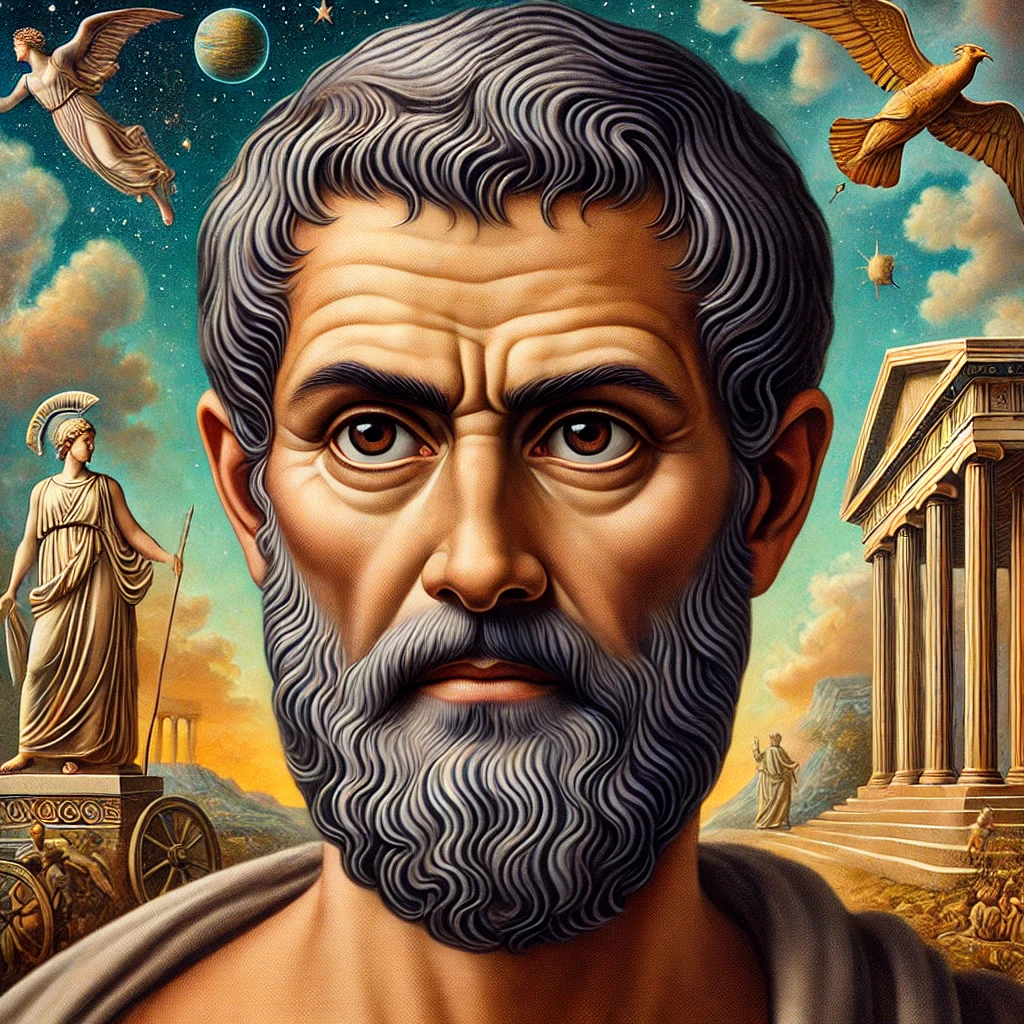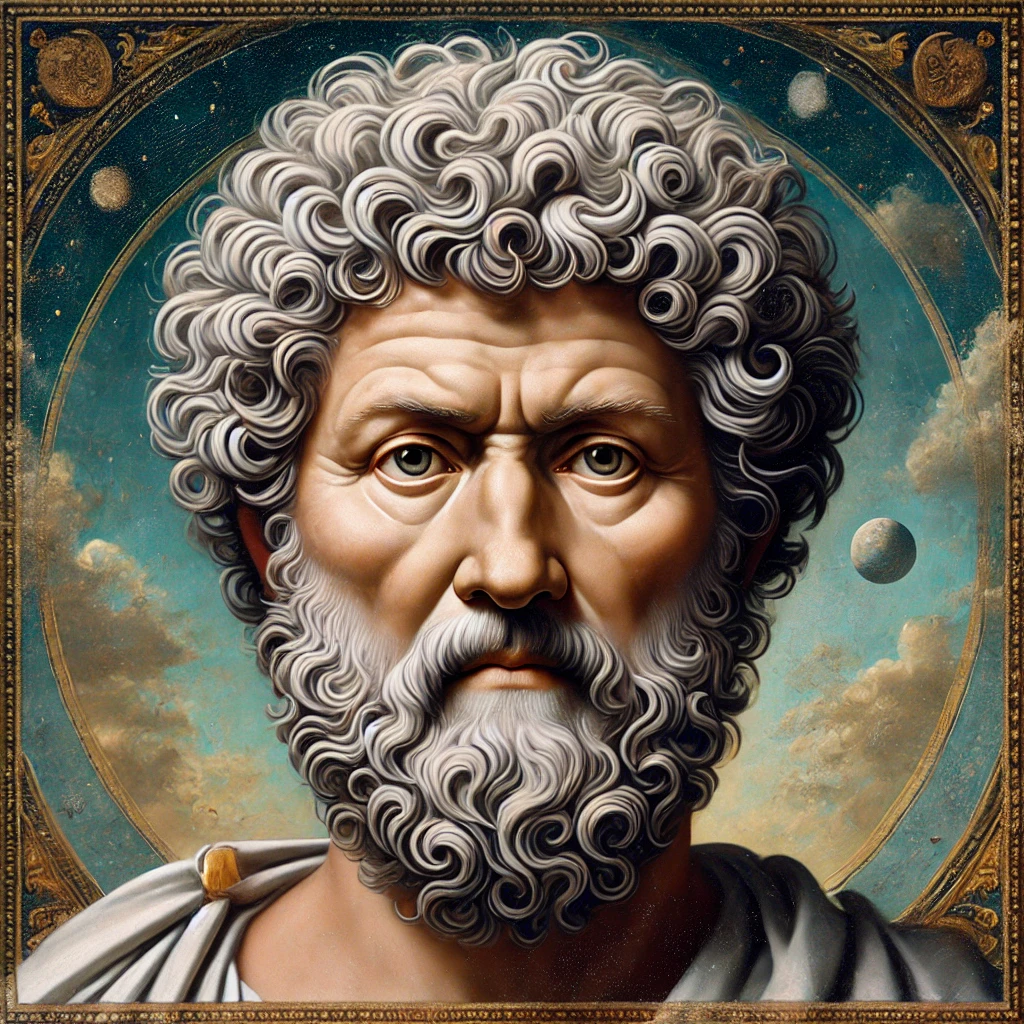Stoicism

Place of Origin: Ancient Greece
Century of Origin: 3rd Century BCE
Associated Philosophers:
Overview of Stoicism
Stoicism is a philosophy that teaches us how to handle life’s challenges calmly and with self-control. It was created in ancient Greece and focuses on the idea that we can’t control everything that happens to us, but we can control how we respond. Stoics believe that by focusing on our own actions and thoughts, we can live a happier and more peaceful life. Instead of getting upset about things we can’t change, Stoicism encourages us to accept them and focus on what we can improve.
Stoics believed that everything in the universe is connected and follows a natural order. They thought that we can’t control the universe, but we can control how we respond to it. For Stoics, the most important thing is to live in harmony with nature and accept whatever happens, knowing that everything has a reason.
In Stoic thought, knowledge comes from understanding how the world works and realizing what is in our control and what isn’t. The Stoics believe that true wisdom comes from accepting that we can’t change the external world, only how we respond to it. By learning to control our emotions and reactions, we gain a clearer understanding of life and can make better decisions. This approach helps us to stay calm and centered, even when life gets difficult.
Stoic ethics teach us that the most important thing is to live according to our values and virtues, like wisdom, courage, and kindness. Stoics believe that we should act in a way that is good for both ourselves and others, and that being a good person is more important than seeking pleasure or avoiding pain. They also emphasize that we should accept whatever happens in life, knowing that we can’t always control the outcome, but we can control how we behave.
Stoic logic is about thinking clearly and rationally, especially in tough situations. Stoics believe that we should use reason to guide our decisions, rather than letting emotions like anger or fear take over. By thinking logically, we can figure out what really matters and focus on what we can control, instead of getting upset by things outside of our control.
Stoics didn’t focus much on art or beauty, but they believed that beauty can be found in simplicity and in the natural world. For them, the true beauty in life comes from living with virtue and peace of mind, rather than from fancy things or appearances.
The Stoic method is about practicing self-discipline and using reason to guide your actions. They believed in constantly reminding themselves of what they can control and accepting what they can’t. Through meditation and reflection, Stoics tried to become better at handling life’s challenges with calmness and wisdom.
Stoics believed that humans are rational beings who should strive to live according to nature. They thought that people are naturally social and should live in a way that benefits both themselves and others. For Stoics, being a good person means acting with wisdom, justice, and kindness, no matter what happens around you.
Stoicism teaches that we are all connected and that we should try to live in harmony with others. Stoics believe that we are all part of the same human community and that our actions should benefit the greater good. While they didn’t focus on politics in the way we think of today, they believed in justice and fairness, and that everyone has a role to play in making society better. They also taught that no matter our place in life, we can choose to live with dignity and virtue.
Stoicism began in ancient Greece and was later developed by Roman philosophers like Seneca, Epictetus, and Marcus Aurelius. It was very popular in ancient times and continues to inspire people today, especially those looking for a practical way to handle life's challenges.
Important themes in Stoicism include accepting what you can’t control, focusing on what you can control, and living in harmony with nature. Stoics believe that by practicing self-discipline and keeping a calm mind, we can live a better and more peaceful life.
Epictetus, a former slave, became a famous Stoic teacher. He believed that true freedom comes from controlling your own mind. Seneca was a Roman philosopher and statesman who wrote about how to live a good life, even in tough situations. Marcus Aurelius, a Roman emperor, kept a journal of Stoic thoughts, which is still read by many today.






